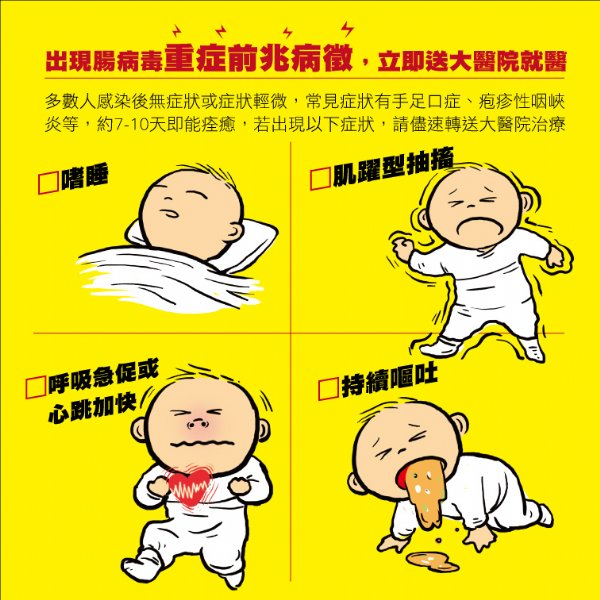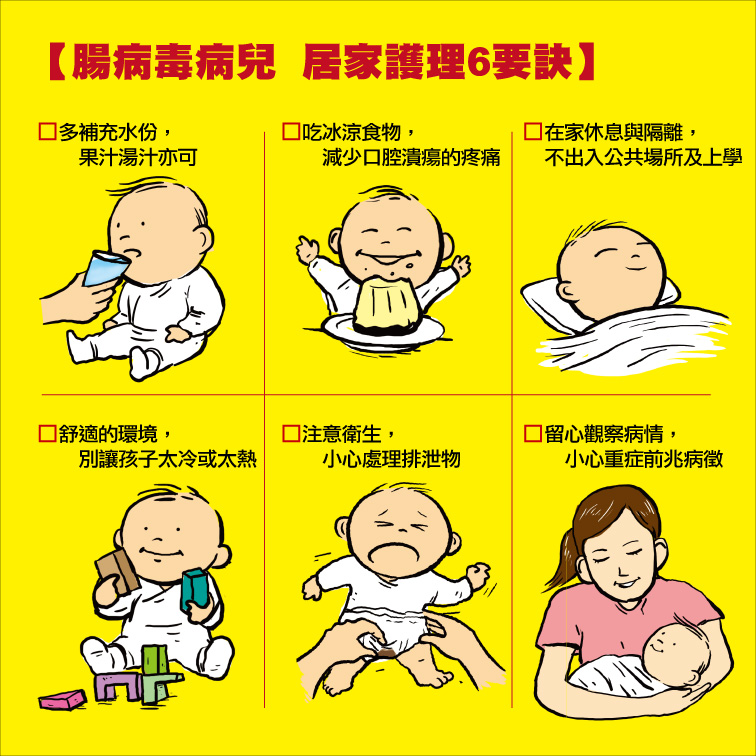As of this year (2024), four confirmed cases of severe enterovirus infection have been reported, with complications involving Coxsackie A2 and A10 viruses, two cases each. Among them, three cases were infants under one year old. The public and childcare personnel are urged to take preventive measures and be aware of the warning signs of severe enterovirus symptoms.
The Taiwan Centers for Disease Control (CDC) reminds us that children under five years old, whose immune systems are not yet fully developed, are at higher risk of developing severe complications such as meningitis, encephalitis, myocarditis, pericarditis, pneumonia, and limb paralysis if infected with enterovirus. The public is advised to change clothes after returning home and to wa

The Taiwan Centers for Disease Control (CDC) urges parents to immediately take their children to a major hospital if they exhibit any of the four major signs of severe enterovirus symptoms. (Image / Screenshot from CDC official website)
If you notice that an infant or young child exhibits signs such as drowsiness, confusion, lethargy, weakness or paralysis in the limbs, myoclonic jerks (sudden muscle contractions or startling), persistent vomiting, rapid breathing, or increased heart rate, seek medical treatment at a major hospital immediately.

The Taiwan Centers for Disease Control (CDC) provides six essential home care tips for children with enterovirus. (Image / Screenshot from CDC official website)
The Taiwan Centers for Disease Control (CDC) states that enterovirus is primarily transmitted through the gastrointestinal or respiratory tracts, and can also be spread through contact with blisters and secretions on an infected person's skin. The virus is present in the throat and feces a few days before symptoms appear and is most contagious during the first week of illness. Even after recovery, the enterovirus can be excreted in the feces for 8 to 12 weeks. Therefore, individuals should continue to maintain good hand hygiene after recovery, following the five steps of handwashing: wet, lather, scrub, rinse, and dry, to prevent transmitting the virus to infants and young children.
For more information, visit the Taiwan Centers for Disease Control (CDC) Global Information Network (https://www.cdc.gov.tw), or call the toll-free epidemic prevention hotline 1922 (or 0800-001922) for inquiries.







